Healthcare Chatbots You Need in 2025
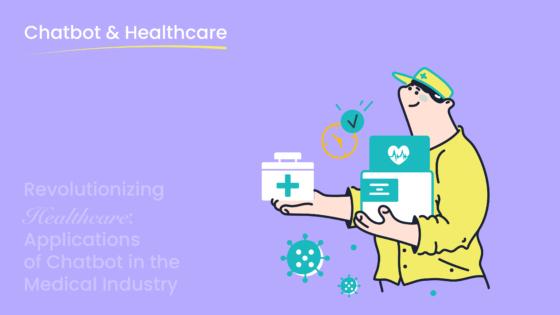
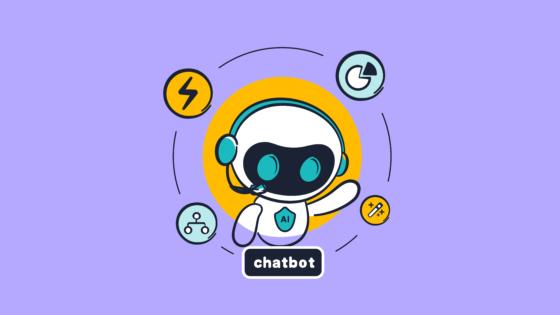
Healthcare chatbots are revolutionizing the way medical services are accessed and experienced. Sobot's chatbot solution for the healthcare industry enhances accessibility by automating over 70% of administrative tasks, enabling quicker responses to patient inquiries. These advanced AI chatbots are projected to save the healthcare sector billions, reducing average handle times by 20% and cutting operational costs globally by $3.6 billion by 2025. Facilities leveraging Sobot's solutions have reported a 40% increase in efficiency. With the global market expected to reach $1.49 billion by 2025, Sobot's chatbot solution for the healthcare industry is transforming care delivery, making it faster, smarter, and more cost-effective.
Virtual Health Assistants: The Future of Personalized Care
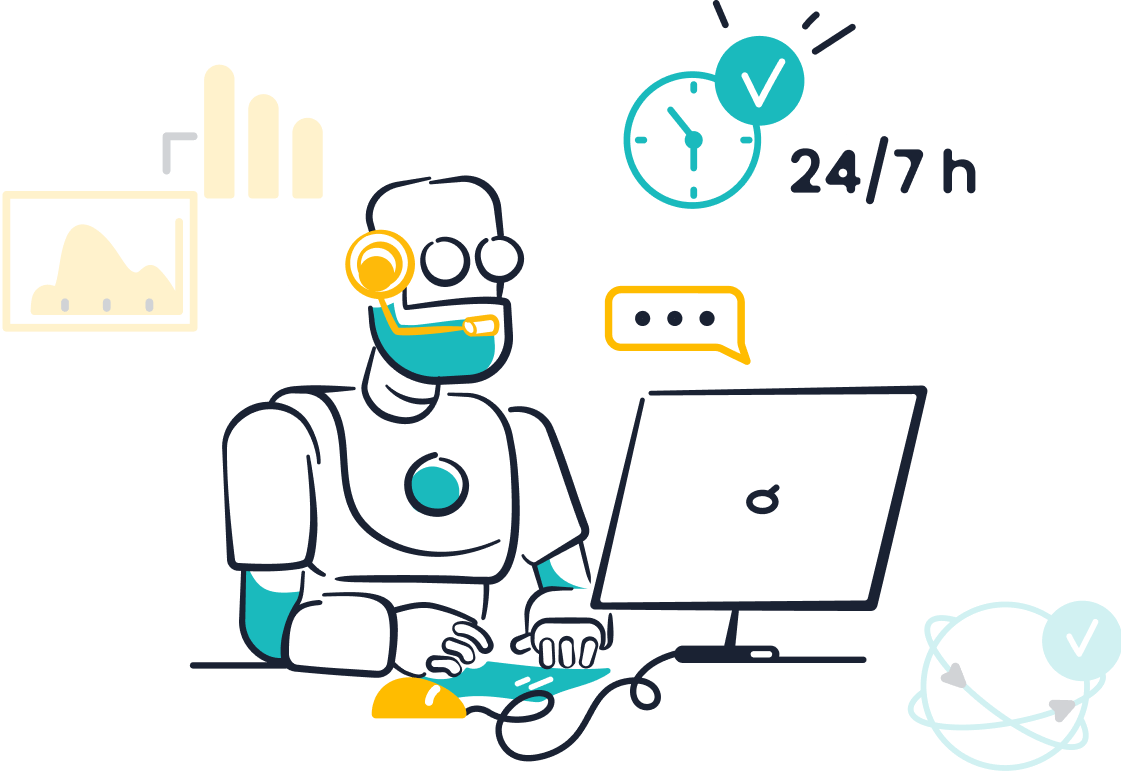
What Are Virtual Health Assistants?
Virtual health assistants are AI-powered tools designed to assist you in managing your healthcare needs. These digital assistants use advanced technologies like machine learning and natural language processing to provide personalized support. They can engage with you to explain medical conditions, suggest treatment plans, and even remind you to take your medications. A report from Markets and Markets highlights the rapid growth of AI in healthcare, projecting an increase from $14.6 billion in 2023 to $102.7 billion by 2028. This growth reflects the rising adoption of virtual healthcare solutions, including virtual health assistants, across the industry.
These assistants go beyond answering basic questions. They analyze data from wearables, electronic health records, and past interactions to offer tailored recommendations. For example, they can monitor your blood sugar levels if you have diabetes or track your mood patterns to support mental health care. By combining real-time data with AI, they ensure you receive accurate and timely guidance.
Real-World Examples of Virtual Health Assistants
Virtual health assistants are already transforming healthcare. AI chatbots like Babylon Health and Ada Health provide symptom checkers that guide you to the right care. These tools use algorithms to assess your symptoms and recommend whether you need to see a doctor or manage your condition at home. Another example is Woebot, a mental health chatbot that offers cognitive behavioral therapy techniques to help you manage stress and anxiety.
In cancer care, AI-powered assistants streamline risk assessments. They evaluate your health data to identify potential risks, enabling faster diagnosis and treatment. These tools also automate appointment scheduling and send medication reminders, ensuring you stay on track with your care plan. By reducing waiting times and improving engagement, these assistants enhance your overall healthcare experience.
Benefits for Patients and Providers
Virtual health assistants offer numerous benefits for both you and healthcare providers. For patients, they provide 24/7 access to information, ensuring you can get answers to your medical questions anytime. They also help you manage your health by tracking progress, setting goals, and sending reminders for medications or appointments. These features improve treatment adherence and overall satisfaction.
For providers, virtual health assistants reduce administrative burdens. They handle repetitive tasks like scheduling and billing, allowing doctors to focus more on patient care. A study shows that AI in healthcare has cut physicians' time spent on administrative tasks by 20%. Additionally, these assistants lower operational costs by automating workflows, saving up to 60% in expenses. This efficiency benefits everyone, creating a more streamlined and effective healthcare system.
Virtual health assistants enhance patient communication by providing accessible, personalized, and efficient support throughout the care journey, ultimately increasing patient satisfaction and improving care continuity.
Symptom Checkers and Triage Tools: Enhancing Patient Outcomes
How Symptom Checkers Work
Symptom checkers are digital tools designed to assess your symptoms and guide you toward the appropriate care. These tools use algorithms powered by artificial intelligence to analyze the information you provide, such as symptoms, medical history, and demographics. Based on this data, they suggest possible conditions and recommend whether you should seek medical attention or manage your symptoms at home.
These tools rely on vast medical databases and machine learning models to improve their accuracy. For example, they compare your symptoms with millions of similar cases to identify potential matches. While physicians still outperform symptom checkers in diagnostic accuracy (72.1% vs. 34%), these tools remain valuable for initial assessments. However, they may occasionally misdirect users, recommending self-care when professional help is needed.
| Evidence Type | Findings |
|---|---|
| User Behavior | 3 in 4 users comply with symptom checker recommendations. |
| Diagnostic Accuracy | Physicians list the correct diagnosis first more often than symptom checkers. |
| Risk of Error | Users may be misdirected to self-care or professional help incorrectly. |
Examples of Symptom Checker Chatbots
Several healthcare chatbots serve as effective symptom checkers. Babylon Health and Ada Health are popular examples. These ai chatbots analyze your symptoms and provide recommendations, helping you decide whether to visit a doctor or manage your condition independently. Another example is Buoy Health, which uses advanced algorithms to offer personalized advice based on your inputs.
These chatbots also contribute to public health by tracking epidemiological data. During the COVID-19 pandemic, symptom checkers played a crucial role in identifying potential cases early. This capability allowed healthcare systems to respond faster and allocate resources more effectively.
- 49.1% of patients and 27.0% of general practitioners reported satisfaction with symptom checkers.
- Approximately 25% of patients noted a positive impact on the quality of their medical visits.
Impact on Emergency Room Visits and Healthcare Efficiency
Symptom checkers significantly reduce unnecessary emergency room visits. Studies show that 12% of emergency department attendances could be managed elsewhere, easing the financial and resource burden on hospitals. By guiding you to the right care, these tools improve healthcare efficiency and ensure that emergency rooms remain available for critical cases.
| Metric | Value |
|---|---|
| Average diagnostic accuracy | 37.7% |
| Correct in top five diagnoses | 51.0% |
| Accurate care recommendation | 57.7% |
| Additional resource utilization suggested | >50% of cases |
| Self-care conditions recommended incorrectly | 80.8% of cases |
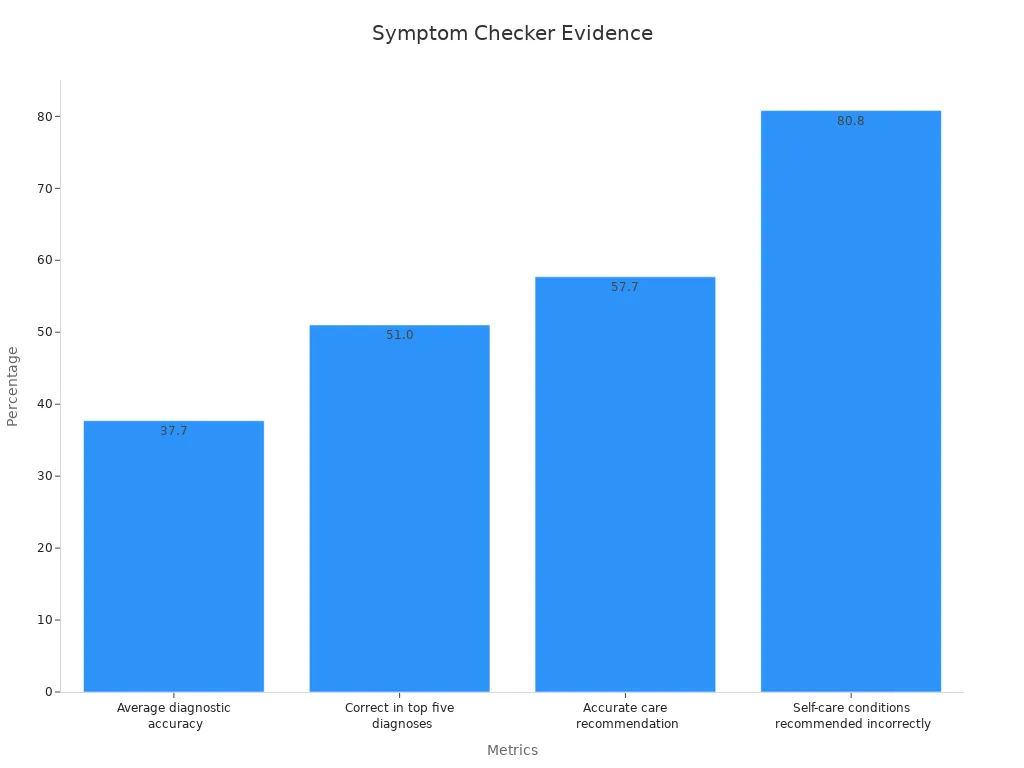
By integrating healthcare chatbots into clinical workflows, hospitals can streamline operations and improve patient outcomes. These tools not only save time but also enhance the overall quality of care.
Mental Health Support Chatbots: Breaking Barriers to Care
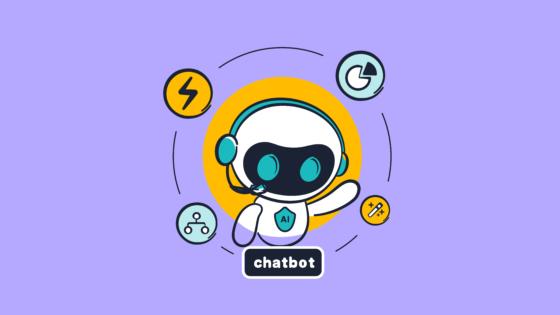
Role of Chatbots in Mental Health Support
Mental health support chatbots play a vital role in addressing the growing demand for accessible mental health care. These AI chatbots provide immediate assistance, offering a safe space where you can share your thoughts without fear of judgment. They use advanced algorithms to guide you through exercises like cognitive behavioral therapy (CBT) or mindfulness techniques, helping you manage stress, anxiety, and depression.
These tools also bridge gaps in traditional care. For example, they offer 24/7 availability, ensuring you can access support whenever you need it. This constant presence can be life-changing during moments of crisis. Chatbots also help match you with the right treatment or therapist, ensuring you receive personalized care. Studies show that they can even reduce symptoms of depression and anxiety, especially for individuals with chronic conditions.
| Evidence Type | Description |
|---|---|
| Effectiveness | Chatbots reduce symptoms of depression and anxiety in chronic disease cases. |
| Accessibility | They provide a low-cost alternative to traditional mental health services. |
| User Comfort | Increased anonymity makes users feel comfortable sharing personal issues. |
| Availability | Chatbots offer round-the-clock support for immediate intervention. |
Examples of Mental Health Chatbots
Several healthcare chatbots have proven effective in mental health care. Woebot, for instance, uses CBT techniques to help you manage stress and anxiety. It engages in real-time conversations, offering coping strategies tailored to your needs. Another example is Youper, which combines CBT and Interpersonal Psychotherapy (IPT) to improve your emotional well-being. These AI chatbots provide continuous support, making mental health care more accessible and convenient.
Benefits for Accessibility and Stigma Reduction
Healthcare chatbots break down barriers that often prevent people from seeking mental health care. Many individuals hesitate to reach out due to stigma or fear of judgment. Chatbots offer a private and anonymous platform, encouraging you to open up about your feelings. This anonymity can lead to earlier intervention and better outcomes.
These tools also address the shortage of mental health professionals, especially in underserved areas. By providing 24/7 support, they ensure help is available regardless of time or location. For example, Woebot has successfully delivered therapy to young adults, showcasing the potential for scalable mental health care. Chatbots also serve as an entry point for those hesitant about traditional therapy, particularly younger individuals who are more comfortable with technology.
AI chatbots not only improve accessibility but also create a stigma-free environment, leading to an improved patient experience and better mental health outcomes.
Medication Management Chatbots: Ensuring Adherence and Safety
How Chatbots Assist with Medication Management
Medication management chatbots play a crucial role in helping you stay on track with your treatment plan. These tools send scheduled reminders to ensure you take your medications on time. They also log your doses, creating a detailed record of your adherence. If you experience side effects, the chatbot can prompt you to report them, allowing healthcare providers to adjust your treatment promptly.
AI chatbots go beyond reminders. They track vital signs and provide educational resources tailored to your condition. This combination of features helps you better understand your medications and their role in your health. By offering 24/7 support, these chatbots ensure you always have access to assistance, making it easier to manage your medications effectively.
Examples of Medication Reminder Chatbots
Several healthcare chatbots have proven effective in medication management. CVS Pharmacy uses AI chatbots to help you refill prescriptions and check medication availability. These chatbots also notify you when your prescriptions are ready for pickup. For elderly patients or those with disabilities, chatbots provide daily reminders, ensuring they don’t miss critical doses.
Health insurance services also leverage these tools to send reminders for medicine refills and vaccinations. By automating these tasks, chatbots reduce the risk of missed medications, which is especially important for managing chronic conditions. This automation not only improves adherence but also enhances overall patient safety.
Benefits for Chronic Disease Management
Medication management chatbots offer significant benefits for chronic disease care. They provide personalized advice based on your health data, ensuring the information is relevant to your condition. These chatbots also analyze your health records to inform treatment plans, improving clinical decision-making.
By educating you about your condition in engaging ways, chatbots empower you to take control of your health. Their 24/7 availability ensures you can access support whenever you need it. This constant assistance improves adherence, reduces complications, and enhances your overall quality of life. For chronic disease patients, these tools are invaluable in maintaining long-term health.
Medication management chatbots combine reminders, education, and personalized support to help you adhere to your treatment plan, ensuring better health outcomes and greater safety.
Administrative Support Chatbots: Streamlining Healthcare Operations
Automating Appointment Scheduling and Patient Onboarding
Administrative support chatbots simplify scheduling appointments and onboarding new patients. These AI chatbots handle tasks like booking, rescheduling, and canceling appointments, ensuring a smoother experience for you. They personalize interactions by analyzing your preferences, making the process efficient and tailored to your needs. For healthcare providers, chatbots reduce the time spent on repetitive tasks, freeing up staff to focus on patient care.
When onboarding new patients, chatbots collect essential information, such as medical history and insurance details. This automation eliminates paperwork and speeds up the registration process. By streamlining these tasks, healthcare chatbots improve operational efficiency and enhance your overall experience.
Examples of Administrative Chatbots in Healthcare
Healthcare facilities worldwide are adopting administrative chatbots to reduce paperwork and improve efficiency. Fairfax Colon & Rectal Surgery implemented an AI-powered call automation system to manage high call volumes across multiple offices. This solution automated 100% of calls, improved patient satisfaction, and reduced staffing needs by 33%. Such examples highlight how AI chatbots transform administrative processes.
Administrative chatbots also excel in handling patient inquiries. They provide quick answers to common questions, such as clinic hours or insurance coverage, reducing the workload on human staff. By automating routine tasks, these chatbots ensure healthcare providers can allocate resources more effectively.
Benefits for Reducing Administrative Burden
Administrative support chatbots offer significant benefits for healthcare operations. They automate appointment requests and patient inquiries, reducing the strain on staff. This automation improves efficiency and lowers costs, allowing healthcare providers to focus on delivering quality care.
The adoption of healthcare chatbots is growing rapidly. In 2022, the market value of AI chatbots in healthcare was $196 million, and it is expected to reach $1.2 billion by 2032. Clinicians across Europe, North America, South America, and Asia Pacific anticipate increased use of chatbots for treatment, with adoption rates reaching 22%. Common use cases include quick answers (37%), issue resolution (35%), and bookings (33%).
| Statistic Description | Value |
|---|---|
| Market value growth from 2023 to 2024 | US$230.28 million to US$269.38 million |
| Projected market value by 2032 | US$944.65 million |
| Expected growth of AI chatbots in healthcare | US$196 million in 2022 to US$1.2 billion by 2032 |
| Adoption rate of chatbots in healthcare | 22% |
| Clinicians expecting increased use for treatment | 48% in Europe, 42% in North America, 53% in South America and Asia Pacific |
| Common chatbot use cases | Quick Answers (37%), Issue Resolution (35%), Bookings (33%) |
| Reduction in administrative burden | Automates appointment requests and patient inquiries |
By reducing administrative burdens, healthcare chatbots create a more efficient system that benefits both patients and providers. Their ability to automate tasks like scheduling appointments and managing inquiries ensures smoother operations and improved satisfaction.
Post-Treatment and Follow-Up Care Chatbots: Supporting Recovery
Role of Chatbots in Post-Treatment Monitoring
Post-treatment monitoring is essential for ensuring a smooth recovery. Chatbots play a vital role in this process by providing consistent support and guidance. They send reminders for medications, track your recovery progress, and ensure you follow treatment instructions. These tools also help you stay on schedule with follow-up visits, reducing the risk of complications. By offering real-time updates and personalized responses, healthcare chatbots make it easier for you to manage your recovery journey.
For example, chatbots can assess how well you are adhering to your care plan. If you miss a medication dose or experience unusual symptoms, the chatbot can alert your healthcare provider. This proactive approach ensures timely interventions, which can prevent readmissions and improve outcomes. With their ability to monitor your progress and provide tailored advice, ai chatbots enhance the effectiveness of post-treatment care.
Examples of Follow-Up Care Chatbots
Several real-world examples highlight the success of follow-up care chatbots in supporting recovery:
| Example | Description |
|---|---|
| Post-surgery chatbot | Guides you through pre-op preparations and post-surgery care, including medication reminders and check-up alerts. |
| AI-driven online screening tool | Used by Cleveland Clinic during COVID-19 to identify high-risk individuals and direct them to seek medical consultation. |
| Pregnancy chatbot | Integrated by Northwell Health to provide information and support during and after pregnancy, identifying urgent issues for timely intervention. |
These examples demonstrate how healthcare chatbots can address diverse needs, from surgical recovery to maternal health. By offering personalized care and timely assistance, they improve your overall experience.
Benefits for Patient Recovery and Satisfaction
Chatbots provide several benefits that enhance your recovery and satisfaction:
- They give you convenient access to information and support, allowing you to revisit details whenever needed.
- They reduce anxiety by explaining surgical procedures and postoperative care clearly.
- They conduct follow-ups to monitor your recovery and ensure you adhere to treatment instructions.
- They send reminders about upcoming appointments, helping you stay on track with your care plan.
- Their interactive nature allows real-time question-and-answer sessions, making you feel more engaged and cared for.
These features not only improve your understanding of your treatment but also foster a sense of trust and comfort. By reducing readmission rates and ensuring timely interventions, healthcare chatbots contribute to better outcomes and higher satisfaction levels.
Post-treatment and follow-up care chatbots empower you to take control of your recovery. They provide the tools and support you need to heal effectively and confidently.
Sobot's Chatbot Solution for Healthcare Industry
Overview of Sobot's AI-Powered Chatbot
Sobot's AI-powered chatbot is a game-changer in the healthcare industry. It automates routine tasks, such as answering patient inquiries and scheduling appointments, allowing healthcare providers to focus on delivering quality care. This chatbot operates 24/7, ensuring patients receive support whenever they need it. Its multilingual capabilities make it accessible to diverse populations, breaking language barriers in healthcare communication.
Sobot's chatbot integrates seamlessly with various platforms, including WhatsApp and SMS, offering omnichannel support. It uses advanced AI to analyze patient data and provide accurate responses. This technology not only improves efficiency but also enhances patient satisfaction. By handling repetitive tasks, the chatbot reduces the workload on healthcare staff, saving time and resources.
Key Features and Benefits of Sobot's Chatbot
Sobot's chatbot solution for the healthcare industry offers several standout features. These include:
- Omnichannel Support: Patients can interact through their preferred platforms, such as social media or messaging apps.
- 24/7 Availability: The chatbot ensures round-the-clock assistance, improving accessibility for patients.
- Multilingual Capabilities: It communicates in multiple languages, catering to diverse patient needs.
- No Coding Required: Healthcare providers can easily customize the chatbot using a point-and-click interface.
| Functionality | Description |
|---|---|
| Voice | Handles customer calls with AI assistance, improving efficiency. |
| Chatbot | Automates inquiries and provides 24/7 support, enhancing satisfaction. |
| Livechat | Connects patients with human agents for complex issues. |
| Ticketing | Manages patient requests, improving response times and organization. |
These features translate into tangible benefits. Sobot's chatbot improves productivity by 70% and reduces operational costs by up to 50%. It also boosts patient engagement by offering personalized, real-time assistance.
How Sobot's Chatbot Enhances Healthcare Services
Sobot's chatbot transforms healthcare services by streamlining operations and improving patient outcomes. It automates administrative tasks like appointment scheduling and patient onboarding, reducing wait times. Patients receive timely reminders for medications and follow-up visits, ensuring better adherence to treatment plans.
The chatbot also supports chronic disease management by tracking patient data and providing tailored advice. For example, it can monitor blood sugar levels for diabetic patients and alert them to potential issues. This proactive approach minimizes complications and enhances care quality.
By integrating with electronic health records, Sobot's chatbot ensures seamless communication between patients and providers. This integration improves decision-making and fosters a more personalized healthcare experience. With its ability to handle high volumes of inquiries, the chatbot reduces the strain on healthcare staff, allowing them to focus on critical tasks.
Sobot's chatbot solution for the healthcare industry empowers providers to deliver faster, smarter, and more efficient care, making it an essential tool for modern healthcare.
Healthcare chatbots are reshaping the future of medical care. They improve patient outcomes by offering personalized support and reducing treatment delays. These tools also lower costs by automating repetitive tasks and enhancing operational efficiency. You can access care faster and more conveniently with ai chatbots, making healthcare more accessible than ever. Sobot’s healthcare chatbot stands out as a leader in this transformation. Its innovative features empower providers to deliver smarter, more efficient care. Explore Sobot’s solutions today and experience the future of healthcare.
FAQ
What are healthcare chatbots, and how do they work?
Healthcare chatbots are AI-powered tools that assist with medical tasks. They use natural language processing to understand your questions and provide accurate responses. These chatbots analyze data, such as symptoms or medical history, to offer personalized advice, schedule appointments, or remind you about medications.
Can healthcare chatbots replace doctors?
No, healthcare chatbots cannot replace doctors. They assist with routine tasks and provide initial guidance. However, they lack the expertise and decision-making skills of medical professionals. You should always consult a doctor for complex medical issues or emergencies.
Are healthcare chatbots secure?
Yes, most healthcare chatbots prioritize security. They use encryption to protect your data and comply with privacy regulations like HIPAA. Always check if the chatbot you use follows these standards to ensure your information stays safe.
How do chatbots improve patient care?
Chatbots improve care by offering 24/7 support, reducing wait times, and providing personalized assistance. They help you manage medications, schedule appointments, and track symptoms. This efficiency ensures you receive timely and accurate care, enhancing your overall experience.
Can Sobot’s chatbot integrate with existing healthcare systems?
Yes, Sobot’s chatbot integrates seamlessly with platforms like electronic health records and messaging apps. This integration ensures smooth communication between you and healthcare providers, improving efficiency and care quality.
💡 Tip: Explore Sobot’s chatbot to experience how it simplifies healthcare tasks while enhancing patient satisfaction.
See Also
10 Leading Websites Utilizing Chatbots This Year
10 Most Effective Chatbots for Websites in 2024
Simple Ways to Integrate Chatbot Examples on Websites